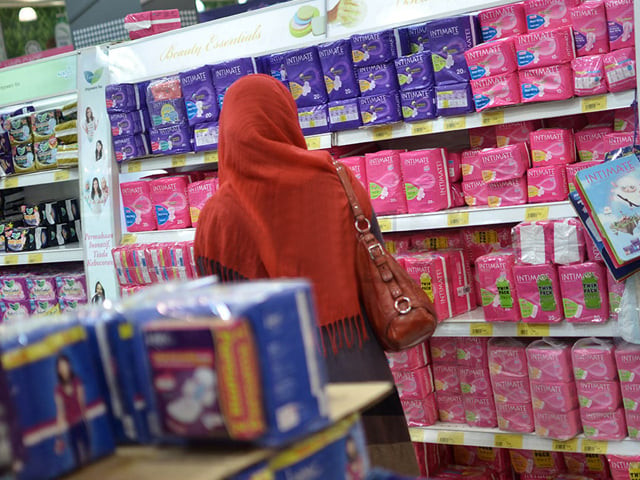RAWALPINDI:
A division bench of the Rawalpindi Bench of the Lahore High Court, comprising Justice Jawad Hassan and Justice Muhammad Raza Qureshi, rejected the Federal Board of Revenue’s (FBR) objection to its jurisdiction in a petition challenging taxes, levies and 40 per cent customs duty on sanitary pads across Pakistan.
The court ruled that millions of women reside across Punjab and the Lahore High Court has the authority to hear the petition.
The court said appropriate orders would be issued and directed the federal government, FBR chairman, Finance Ministry and National Human Rights Commission to file clause-based replies within two weeks.
The court expressed its displeasure that the institutions had not submitted written responses.
During the hearing, the FBR lawyer argued that since the respondents include the Federation of Pakistan and the FBR, the petition can only be filed before the Islamabad High Court and the Rawalpindi Court lacks jurisdiction. However, the court overruled this objection and ordered all defendants to submit written responses before the next hearing.
The petition was filed under Article 199 by lawyer Mah Noor Umar, 25, daughter of Umar Ali Khan, in the public interest of women.
The petition claims that Pakistan’s female population is 48.51 percent – 151 million women. However, sanitary pads are taxed up to 40 percent. Critics argue that this amounts to punishing women simply for being women and demand the elimination of the “period tax.”
Under the Sales Tax Law of 1990, domestically manufactured sanitary napkins are subject to 18 percent sales tax, while imported sanitary napkins and raw materials pay a 25 percent customs duty.
UNICEF Pakistan says cumulative taxes increase the price of a single sanitary pad by about 40 percent.
The petition maintains that these taxes are discriminatory and violate constitutional guarantees of equality, dignity, social justice and protection against exploitation.
In a society where menstruation is still considered “shameful”, high taxes make sanitary products even more inaccessible.
A pack of 10 sanitary pads costs Rs 450, while the average monthly income in Pakistan is approximately $120, which is equivalent to a family meal. Eliminating the 40 percent tax would put prices within the reach of ordinary women.
Research by UNICEF and WaterAid (2024) shows that only 12 percent of Pakistani women use commercial sanitary pads. Most rely on cloth or other alternatives, often without clean water or sanitation facilities. Lower prices would benefit millions of women.
The petition argues that this step is essential for women’s health and to change social attitudes. Calls for all taxes and duties on sanitary pads to be declared unconstitutional, eliminated entirely, and for the government to ensure free distribution in girls’ schools.
The petitioner’s lawyer, Ahsan Jehangir Khan Advocate, said the case is about restoring the dignity of women, not just financial concerns. Global precedents, such as India (2018), Nepal (2025) and the United Kingdom (2021), have eliminated periodic taxes. The petitioner maintains that if sanitary pads become affordable, girls will not drop out of school, women will work with confidence and society will be healthier overall.




